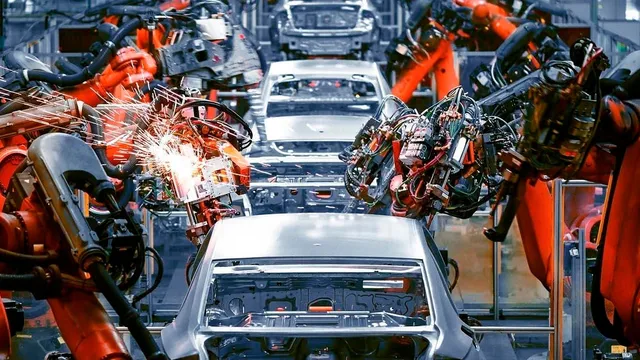
China takes steps to regulate fierce competition in the EV market
2025-07-04 03:01- Chinese equities show mixed performance as the government addresses economic issues.
- Heightened concerns over price wars in the electric vehicle market have prompted government intervention.
- Investors are hopeful that regulatory efforts will stabilize the market and improve profit margins.
Express your sentiment!
Insights
In recent weeks, mainland China experienced fluctuations in its stock market due to concerns over various economic sectors. The Chinese government, through President Xi Jinping, convened a notable meeting of the Central Committee for Financial and Economic Affairs to discuss significant economic issues. Key announcements include the need to manage low-price and irregular competition in industries such as electric vehicles and e-commerce. This marks a response to overcapacity in the auto market, with increased inventory levels reported among auto dealers, indicating potential liquidity risks and the urgency to stabilize the market. The electric vehicle market, which has seen rapid expansion, is now facing challenges related to oversupply and price wars. Major automakers, including BYD, have faced scrutiny for aggressive pricing strategies, leading to calls for fair competition practices. Several automakers have made pledges to improve payment practices to suppliers in an attempt to alleviate financial pressures within the industry. The situation raises concerns akin to those experienced in the real estate sector with the collapse of Evergrande, emphasizing the potential for a crisis if competitive practices do not improve. In the context of these developments, the Chinese automobile industry finds itself at a crossroads, where governmental oversight and regulatory measures become imperative to ensure sustainable growth. As the government aims to facilitate an orderly exit of backward production capacities, it seeks to protect both industry players and consumers from the ramifications of unchecked competition. The health of the electric vehicle market has broader implications for the economy, affecting investment patterns and market confidence. Observers remain cautious yet hopeful for the effectiveness of the government's measures, which are crucial for maintaining the stability of both the EV sector and the overall economy in the long run.
Contexts
The electric vehicle (EV) market in China has experienced a meteoric rise in recent years, driven by rapid technological advancements, favorable government policies, and a growing consumer demand for cleaner transportation options. However, this rapid expansion has given rise to a significant concern: market overcapacity. Overcapacity occurs when the production capacity of EVs exceeds actual consumer demand, leading to increased competition, reduced profit margins, and potential financial instability for manufacturers. The phenomenon is particularly relevant in a dynamic market like China, where aggressive targets and ambitious plans for EV production have led to an influx of companies entering the sector. China's automotive industry has been heavily influenced by government initiatives aimed at promoting electric vehicles as a key component of the country’s strategy to tackle climate change and reduce air pollution. Subsidies, tax incentives, and investments in charging infrastructure have spurred both traditional automakers and new entrants to ramp up production. According to industry reports, as of 2023, the total number of EV manufacturers in China had skyrocketed, leading to fierce competition in an already fragmented market. Some estimates suggest that the current production capacity could outpace demand by a substantial margin, creating a scenario where many companies may struggle to remain profitable. The consequences of this overcapacity are profound. For consumers, increased competition could lead to lower prices and greater innovation; however, for manufacturers, it presents a daunting challenge. Companies may resort to aggressive marketing strategies, which can erode profit margins further. Additionally, the risk of a potential market shakeout looms large, which could result in several companies exiting the market or consolidating to survive. The risk of establishing 'zombie companies'—businesses that continue to operate despite being unprofitable—further complicates the landscape, draining resources and stifling innovation. Looking ahead, it is crucial for industry stakeholders, including manufacturers, regulators, and policymakers, to engage in strategic planning and collaboration to mitigate the risks associated with overcapacity. This includes aligning production capacities with realistic demand forecasts, improving consumer education about EV benefits, and investing in research and development to enhance technological competitiveness. As the market matures, a balance must be struck that encourages growth while preventing the adverse effects of overcapacity, ensuring the sustainability of the Chinese electric vehicle market.